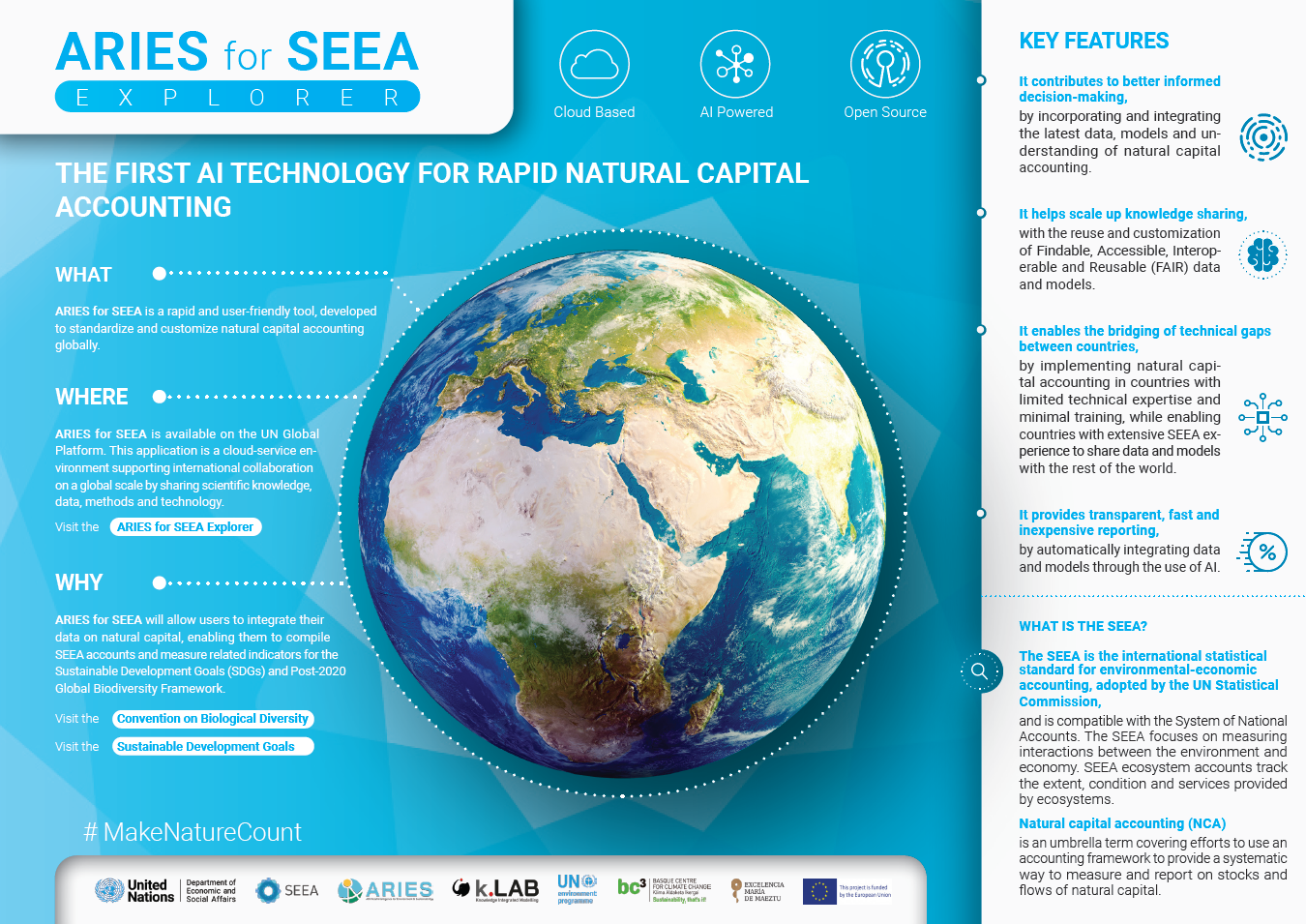UN ARIES for SEEA Sector Hub
Bilbao, Spain Hub Website
Infrastructure
The central hub of a digital infrastructure for the monitoring and analysis of global sustainability has been developed in the Basque Country, at BC3, and is serving the rest of the world, from the DIPC Supercomputing Center. We envision this as the beginning of a global digital commons devoted to the scientific knowledge of Earth and its sustainability.
The physical infrastructure supporting the ARIES for SEEA Sector Hub is now officially an extension of the UN Global Platform and is hosted by the DIPC Supercomputing Center. DIPC hosts the core of the physical infrastructure and several other nodes of this distributed system (a web of nodes, similar to the internet, but dedicated to scientific observations) that has different categories of users, from individual scientists to international organizations.
Mission & Goals
The primary aim of this technology is to connect data and models from diverse institutions and agencies.
Context / Need
A variety of ecosystem service modelling platforms have been built over the last decades to meet various user demands, as have numerous data viewers and dashboards, but their development has been uncoordinated. These platforms often duplicate efforts, rely on data that are siloed, and rarely effectively reuse the knowledge gained from past modelling efforts.
Solution
With the creation of the ARIES for SEEA Sector Hub in 2022, the statistical community can access better informed, nature-positive decision-making from businesses and governments, by incorporating and integrating the latest data, models and understanding of natural capital accounting.
Goal
The Sector Hub, which undertakes the development of ARIES for SEEA, aims at facilitating rapid, transparent, intelligently assembled, and inexpensive reporting on key global initiatives such as the Sustainable Development Goals (SDGs), Kunming-Montreal Global Biodiversity Framework, and the Paris Climate Agreement, by automatically integrating data and models through the use of AI. Critically, the approach offers national statistical offices a starting point to begin needed conversations with data producers and modellers, by building initial estimates based on global data and pre-existing models and then continually working with data producers and modellers to improve initial results using local scientific data and knowledge.
Specifically, we will:
- Develop data science methodologies aimed to support new statistical approaches and methods in the domain of environment and sustainability
- Provide capacity building and training for researchers, statisticians and data scientists
- Further develop and maintain the ARIES for SEEA application and the components of the ARIES platform necessary for its deployment as a part of the UN Global platform, as an authoritative source of data, methods and learning resources among the community of official statistics and its stakeholders.
- Implement an interoperability strategy that describes the roles and responsibilities of all stakeholders (data providers, research and model developers, and platform hosts) to support the global implementation of the SEEA Ecosystem Accounting.
Location:
Bilbao, Spain
Basque Center for Climate Change (BC3)
EDIFICIO SEDE 1, 1º PLANTA 1
PARQUE CIENTIFICO UPV/EHU B/SARRIENA s/n, 48940 Leioa, Biscay




